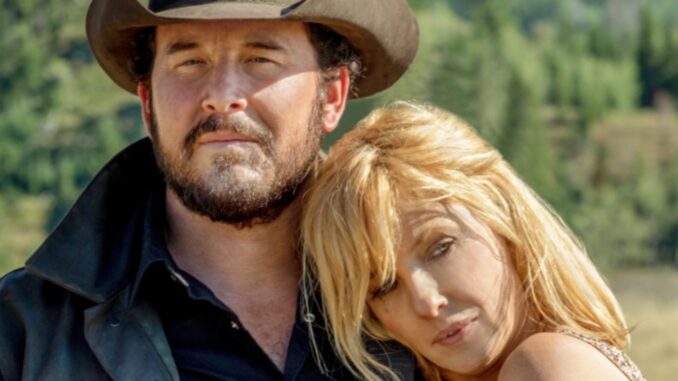
The Unfurling Banner: Why Cole Hauser's New Venture Ignites More Anticipation Than Another Yellowstone Spinoff
The world of Taylor Sheridan’s Yellowstone is a sprawling, sun-drenched epic, a modern American saga that has captivated millions. Its success has spawned a universe of prequels and potential future narratives, each promising more of the Dutton dynasty’s trials and triumphs. Yet, amidst the familiar crackle of cattle drives and the stark beauty of brooding landscapes, a different kind of anticipation is stirring. Cole Hauser, the enigmatic Rip Wheeler, a character synonymous with the very soul of Yellowstone, is embarking on a new journey with his upcoming series, The Gray House. And for many, this departure—this bold step onto an entirely different canvas—is proving to be a far more exhilarating prospect than another meticulously crafted, yet fundamentally familiar, Yellowstone spinoff.
The appeal of the Yellowstone spinoffs, like the critically acclaimed 1883 and 1923, is undeniable. They offer the comfort of a known universe, the thrill of filling in the blanks of a beloved family’s history, and the assurance of Taylor Sheridan’s distinctive narrative voice and cinematic grandeur. We are drawn to the promise of more visceral authenticity, more breathtaking vistas, and more unflinching examinations of the human spirit against the backdrop of an untamed American frontier. However, therein lies a subtle trap: the very strength of the franchise can, ironically, become its limitation. With each new chapter, there’s an inherent risk of diminishing returns, of echoing familiar refrains, or of characters, however compelling, fitting into pre-established archetypes. The golden thread of the Dutton legacy, while rich, risks becoming a gilded cage, limiting the scope for truly unexpected stories.
Enter Cole Hauser and The Gray House. The excitement surrounding this project stems not from its connection to an existing behemoth, but from its audacious independence. For years, Hauser has masterfully embodied Rip Wheeler, a character so iconic, so deeply etched into the cultural consciousness, that it’s almost impossible to imagine another actor in the role. Rip is a force of nature—loyal, brutal, tender, and intensely magnetic. He is the personification of a certain kind of rugged American masculinity, and Hauser imbues him with a simmering intensity that rarely breaks, but always feels on the verge.
To see an actor of Hauser’s caliber step out from under such an iconic shadow and venture into entirely new territory is, in itself, a thrilling proposition. The Gray House, a historical drama based on a true story set during the Civil War, offers a complete genre shift. It’s not another Western, not another chapter in the Dutton saga. It’s a fresh narrative, unburdened by the expectations of an existing franchise. This allows Hauser to shed the cracked leather and brooding silence of Rip, and to explore a completely different facet of his immense talent. It’s the promise of reinvention, of seeing an artist push boundaries and surprise audiences who might have started to believe he was exclusively defined by his most famous role.
Moreover, the nature of The Gray House as a standalone, limited series suggests a focused, tightly woven narrative. Spinoffs, by their very nature, often serve a larger mythology, needing to build bridges to the past and future of the main story. The Gray House, however, has the freedom to tell its own story, with a clear beginning, middle, and end, unencumbered by the need to perpetually expand a universe. This often allows for deeper character exploration, more nuanced historical detail, and a greater sense of narrative urgency. The stakes feel inherently higher because the story exists solely for itself, not as an additive to something grander.
Ultimately, the allure of Cole Hauser’s new series is the allure of the unknown, the thrill of artistic bravery. While a new Yellowstone spinoff might offer a comfortable continuation of a beloved narrative, The Gray House promises the exhilarating spectacle of an actor stretching his wings, tackling a fresh genre, and delivering a standalone story with the potential for profound impact. It's the difference between revisiting a cherished memory and embarking on an entirely new adventure. In a television landscape increasingly dominated by sprawling universes and interconnected sagas, the prospect of a singular, powerful story, championed by a beloved actor in a completely different light, feels not just exciting, but genuinely invigorating. It’s a testament to the power of artistic growth, and a reminder that sometimes, the most exciting path is the one less traveled.
